Export Training
Astan Services: Your Expert in Import and Export Procedures
Welcome to Astan Services, your trusted partner in launching and succeeding in international trade. Whether you’re wondering if you’re ready to export, need guidance on procedures, licenses, GST, or understanding the roles of key organizations like FIEO, RCMC, RBI, DGFT, and AD Bank, we provide comprehensive solutions to make your export journey seamless. Learn how to comply with regulations and report your trade activities to the Indian Government with our expert support. Explore the answers to your key questions below and start your export journey with confidence.
Am I Ready to Become an Exporter?
Exporting is a rewarding opportunity but requires preparation and resources. To determine if you’re ready, consider:
Market Research: Do you understand global demand for your product (e.g., textiles, spices, or electronics)? Have you identified target markets?
Product Readiness: Are your products compliant with international quality standards (e.g., ISO, FDA for food exports)?
Financial Capacity: Can you cover initial costs like production, shipping, and certifications?
Business Infrastructure: Do you have a registered business entity (e.g., proprietorship, company) and a current bank account?
Knowledge of Regulations: Are you prepared to navigate customs, licenses, and trade agreements?
How Astan Services Helps: We assess your readiness with a personalized export readiness checklist. Our experts analyze your product, market potential, and financial capacity, providing a tailored roadmap to start exporting. Contact us for a free export readiness consultation!
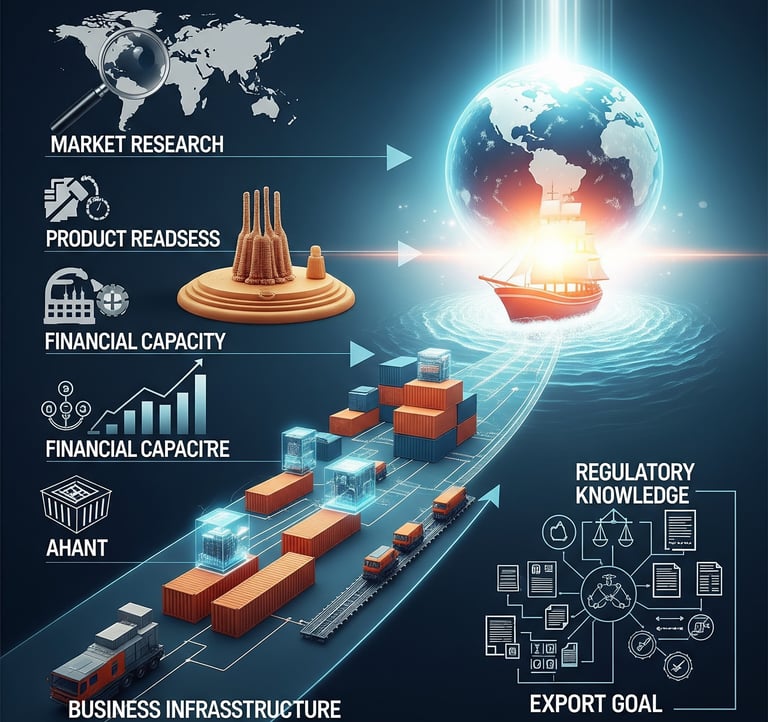

What Are the Procedures to Become an Exporter in India?
Becoming an exporter in India involves a clear set of steps to establish your business and comply with regulations.Procedure:
Register Your Business: Establish a legal entity (e.g., sole proprietorship, partnership, or company) with the Ministry of Corporate Affairs (MCA) or relevant authority.
Obtain an Importer Exporter Code (IEC): Apply for an IEC through the Directorate General of Foreign Trade (DGFT) portal, submitting PAN, Aadhaar, and bank details.
Open a Current Account: Set up a current account with an Authorized Dealer (AD) bank for export transactions.
Register with Export Promotion Councils (EPCs): Obtain a Registration-cum-Membership Certificate (RCMC) from the relevant EPC, such as FIEO or APEDA.
Understand Product Regulations: Ensure compliance with export licenses, quality certifications, and destination country requirements.
Prepare Documentation: Gather documents like commercial invoices, packing lists, and certificates of origin for export clearance.
File Shipping Bills: Use the ICEGATE portal to file Shipping Bills for customs clearance and export.
How Astan Services Helps: We guide you through every step, from business registration to IEC application, RCMC, and documentation. Our team ensures you’re fully prepared to start exporting efficiently. Let us simplify your journey to becoming an exporter!
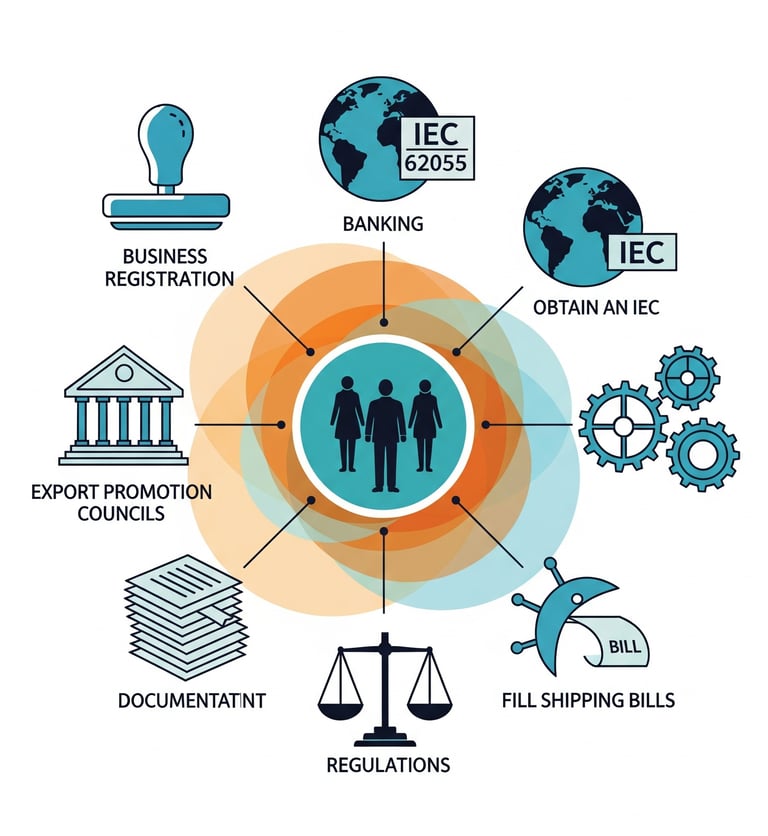

What Are the Licenses and Regulations to Be Followed?
Exporting from India requires compliance with specific licenses and regulations to ensure legal and smooth operations.Key Licenses:
Importer Exporter Code (IEC): Mandatory for all exporters, issued by DGFT.
Export Licenses: Required for restricted goods (e.g., dual-use items, chemicals) under the Foreign Trade Policy (FTP).
Registration-cum-Membership Certificate (RCMC): Issued by Export Promotion Councils to access benefits and trade networks.
Quality Certifications: Product-specific certifications like ISO, FSSAI (for food), or BIS (for electronics).
Letter of Undertaking (LUT): Allows exporters to export without paying Integrated Goods and Services Tax (IGST) upfront.
Key Regulations:
Foreign Trade Policy (FTP) 2023: Governs export procedures, incentives, and restrictions.
Customs Act, 1962: Regulates export clearance, duties, and documentation.
Foreign Exchange Management Act (FEMA), 1999: Governs foreign currency transactions, enforced by the Reserve Bank of India (RBI).
How Astan Services Helps: We assist in securing IEC, RCMC, export licenses, and LUTs while ensuring compliance with FTP, Customs, and FEMA regulations. Our experts handle documentation and certifications to keep you compliant. Contact us to navigate export regulations effortlessly!
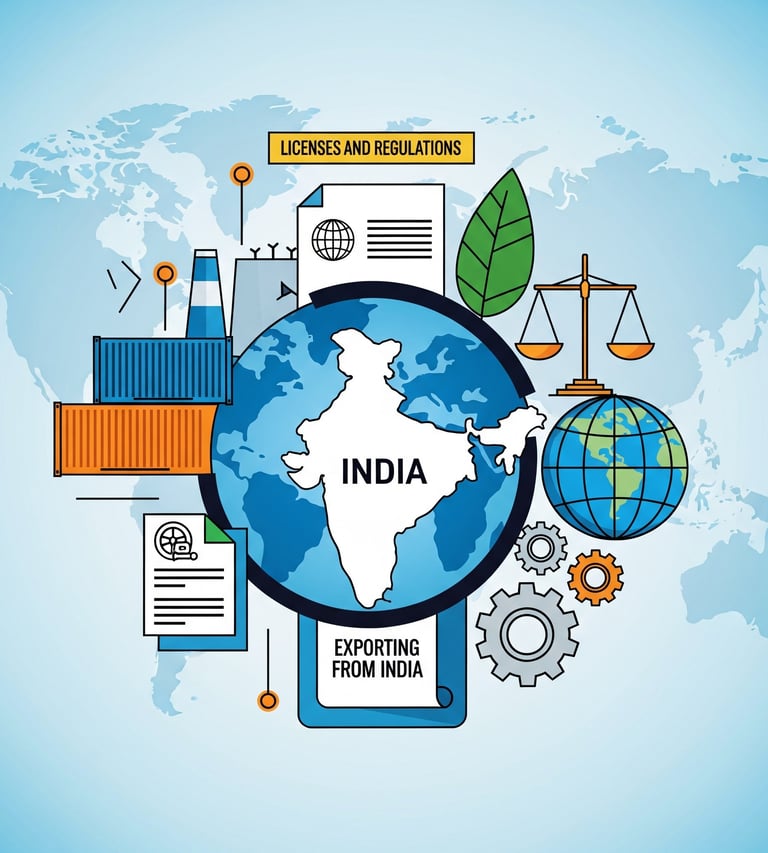

Do I Require a GST for Exports?
Goods and Services Tax (GST) is relevant for exporters in India, but its application depends on your export activities.
GST Registration: Mandatory if your annual turnover exceeds ₹40 lakh (₹20 lakh for special category states) or if you deal in taxable goods/services. Even with lower turnover, GST registration is recommended for exporters to claim refunds.
Exports as Zero-Rated Supplies: Exports are considered zero-rated under GST, meaning no GST is charged on exported goods. However, you can claim Input Tax Credit (ITC) on inputs used for exports.
Letter of Undertaking (LUT): File an LUT with GST authorities to export without paying IGST upfront, or pay IGST and claim a refund later.
GST Refunds: Claim refunds for ITC or IGST paid on exports by filing GSTR-1 and GSTR-3B on the GST portal.
How Astan Services Helps: We assist with GST registration, LUT filing, and refund claims, ensuring you maximize benefits under the GST regime. Our team streamlines your GST compliance for hassle-free exports. Reach out to optimize your GST processes!
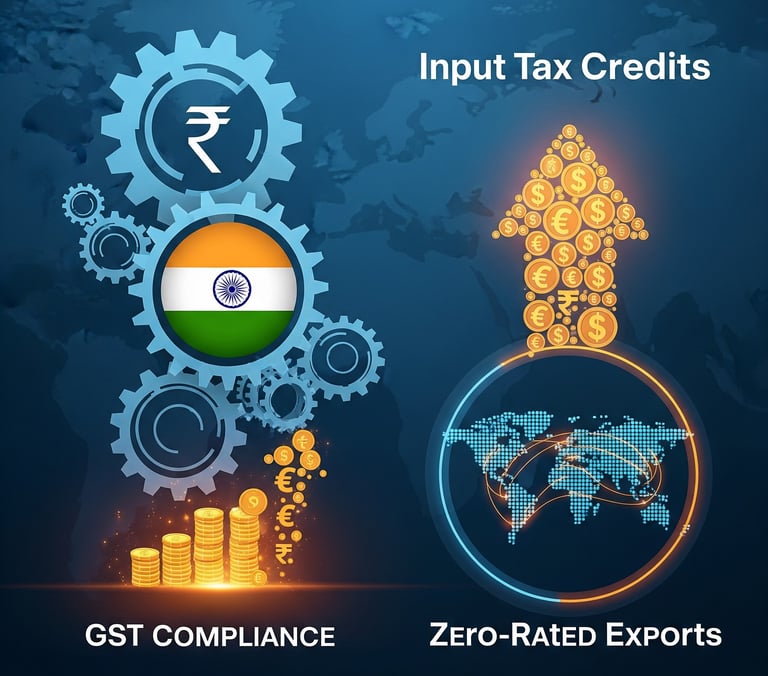

What Are the Significance of FIEO, RCMC, RBI, DGFT, and AD Bank?
Understanding the roles of key organizations is crucial for successful exporting in India.
FIEO (Federation of Indian Export Organisations): Promotes exports by providing market intelligence, trade fair opportunities, and policy advocacy. FIEO issues RCMCs and connects exporters to global buyers.
RCMC (Registration-cum-Membership Certificate): Issued by FIEO or other Export Promotion Councils (e.g., APEDA, Tea Board). It enables access to export incentives, trade networks, and policy benefits.
RBI (Reserve Bank of India): Regulates foreign exchange transactions under FEMA, ensuring timely repatriation of export proceeds to India. RBI oversees Authorized Dealer (AD) banks for export payments.
DGFT (Directorate General of Foreign Trade): Administers the Foreign Trade Policy, issues IEC, Advance Authorizations, and other export licenses. DGFT oversees export compliance and incentives.
AD Bank (Authorized Dealer Bank): Handles export-related financial transactions, such as receiving foreign remittances, issuing Bank Realization Certificates (BRCs), and filing AD codes with Customs.
How Astan Services Helps: We facilitate interactions with FIEO, DGFT, and AD Banks, securing RCMCs, IECs, and BRCs. Our team ensures compliance with RBI regulations and connects you to FIEO’s trade networks. Let us handle these complexities for you!
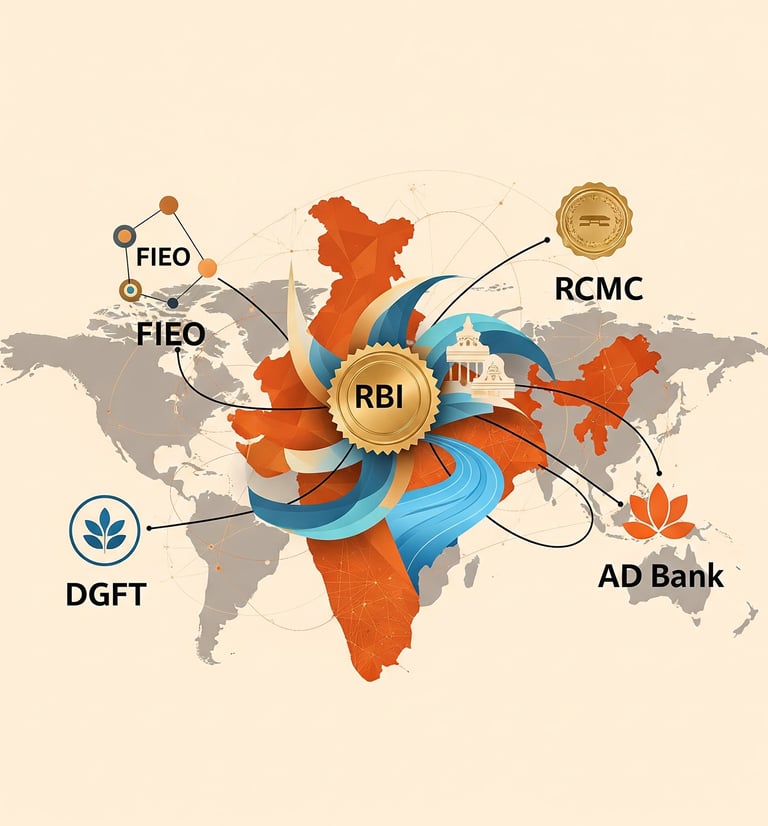

How Do I Report My Exports and Imports to the Indian Government?
Reporting exports and imports to the Indian Government ensures compliance with regulatory and financial requirements
Export Reporting:
File Shipping Bills: Submit Shipping Bills via ICEGATE for every export shipment, detailing goods, value, and destination.
Export General Manifest (EGM): Ensure the shipping line/airline files the EGM with Customs to confirm export completion.
Bank Realization Certificate (BRC): Submit BRC to your AD Bank to confirm receipt of export proceeds, as required by RBI under FEMA.
GST Reporting: File GSTR-1 and GSTR-3B to report export details and claim ITC or refunds.
DGFT Reporting: Submit export data for incentive schemes (e.g., Duty Drawback, Advance Authorization) via the DGFT portal.
Import Reporting:
File Bills of Entry: Submit Bills of Entry via ICEGATE for every import, detailing goods and duties.
GST Reporting: Report imports in GSTR-2A and claim ITC for IGST paid on imports.
Customs Compliance: Provide import documents (e.g., invoices, certificates of origin) to Customs for clearance.
How Astan Services Helps: We manage all reporting requirements, from Shipping Bills and BRCs to GST filings and DGFT submissions. Our team ensures timely and accurate reporting to avoid penalties and unlock incentives. Contact us to streamline your trade reporting!
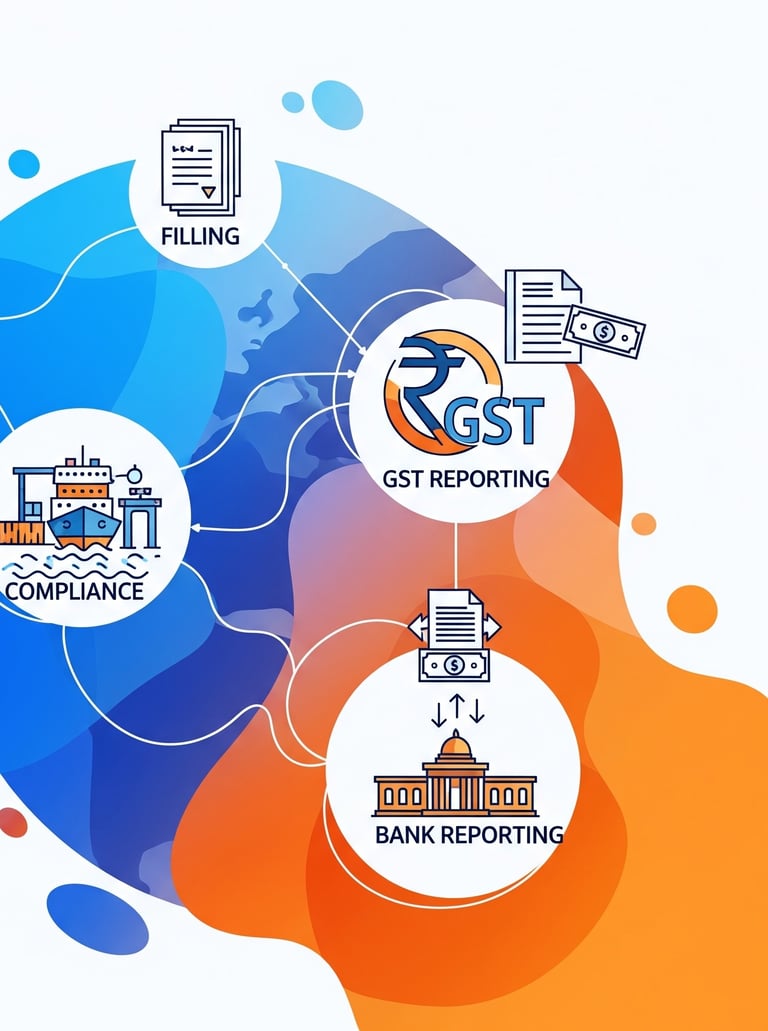

Why Choose Astan Services?
At Astan Services, we empower aspiring exporters with end-to-end support to start and scale your international trade journey. Our services include:
Export Readiness Assessment: Evaluate your business’s potential for global trade.
Licensing and Compliance: Secure IEC, RCMC, LUTs, and export licenses.
Financial Guidance: Manage GST, RBI compliance, and AD Bank transactions.
Documentation and Reporting: Handle Shipping Bills, Bills of Entry, and government reporting.
Market Connections: Leverage FIEO and EPC networks to connect with global buyers.
Get Started Today: Contact Astan Services for a free consultation to kickstart your export journey.
